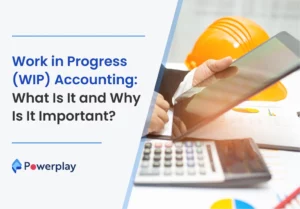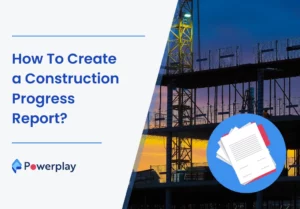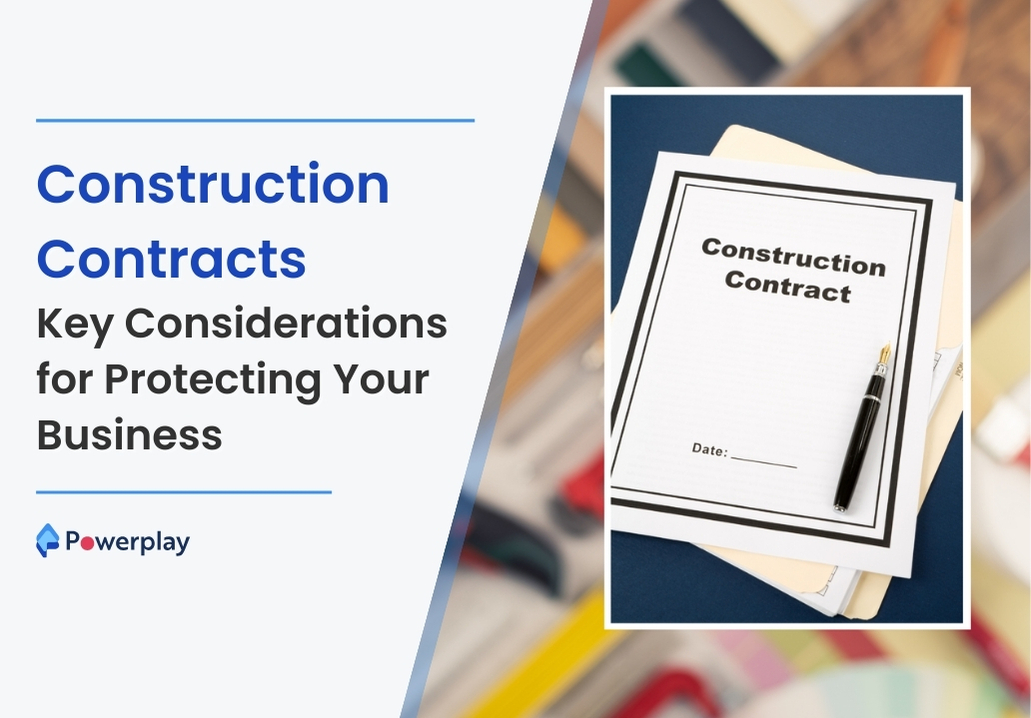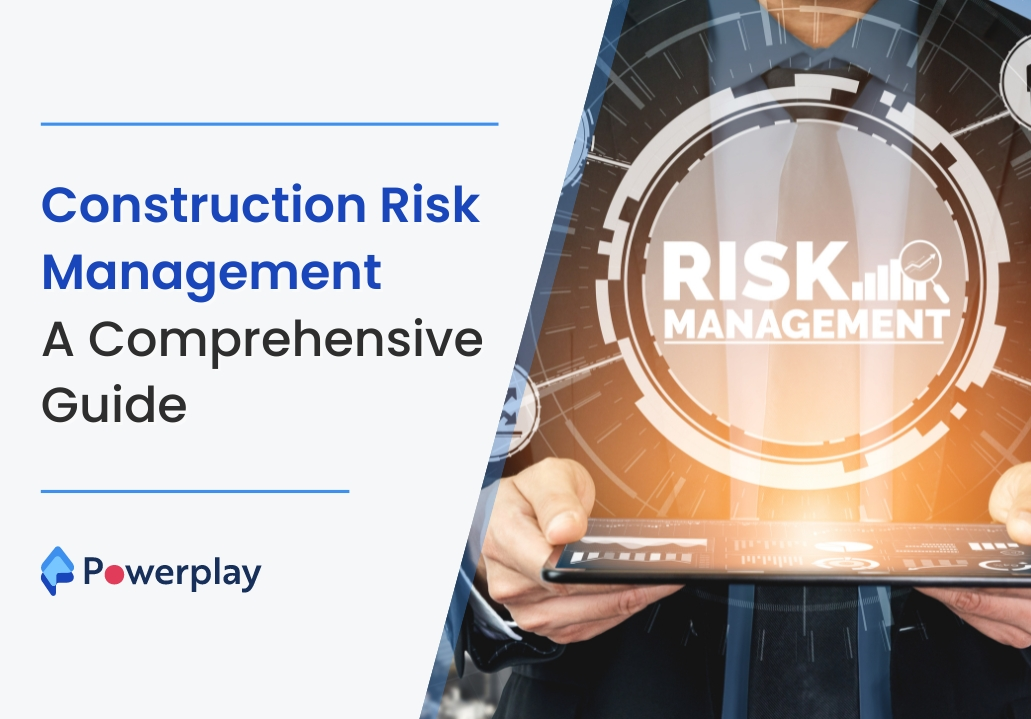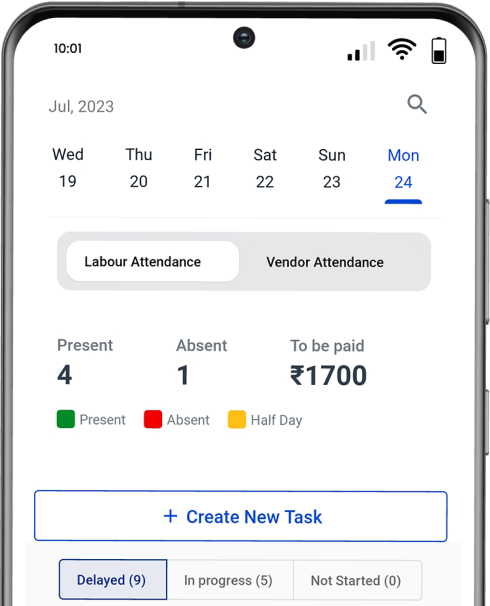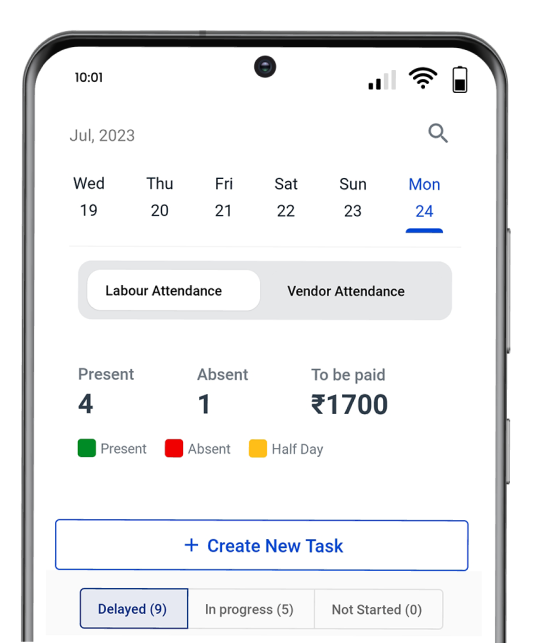Construction Cost Management: Managing Construction Costs
-
Sapna
- May 10, 2024
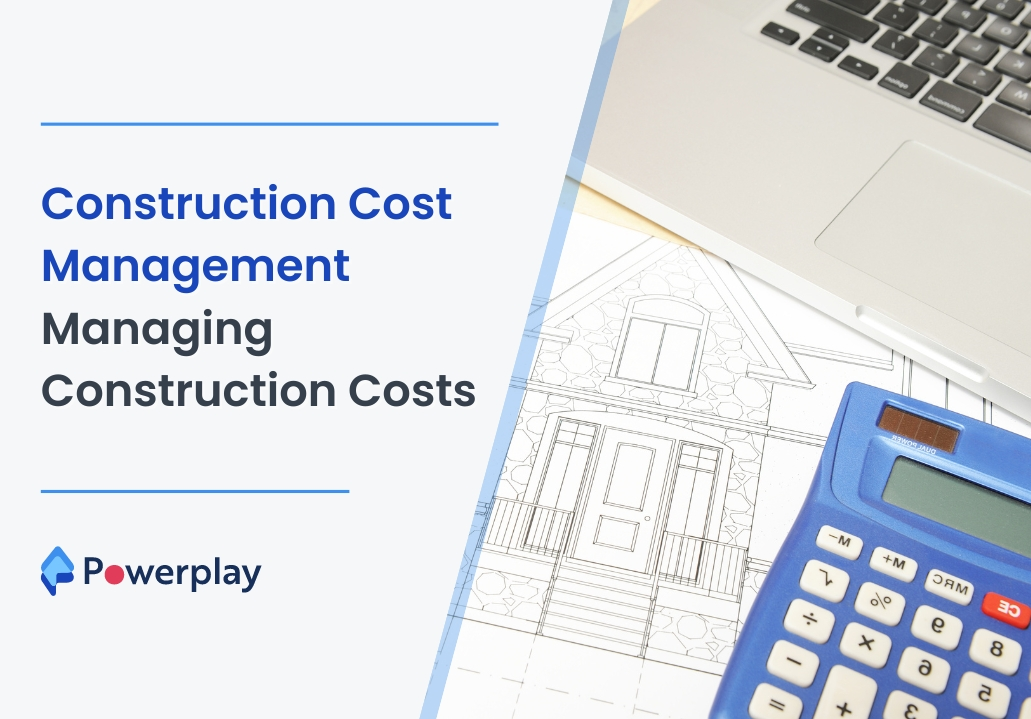
Construction costs are just one of the many critical elements a project manager must monitor to ensure a construction project runs smoothly. Alongside managing costs, they must keep track of schedules, maintain high-quality standards, and uphold strict safety protocols. However, if expenses exceed the budget, it can significantly impact the financial health of the project and the contractor’s bottom line.
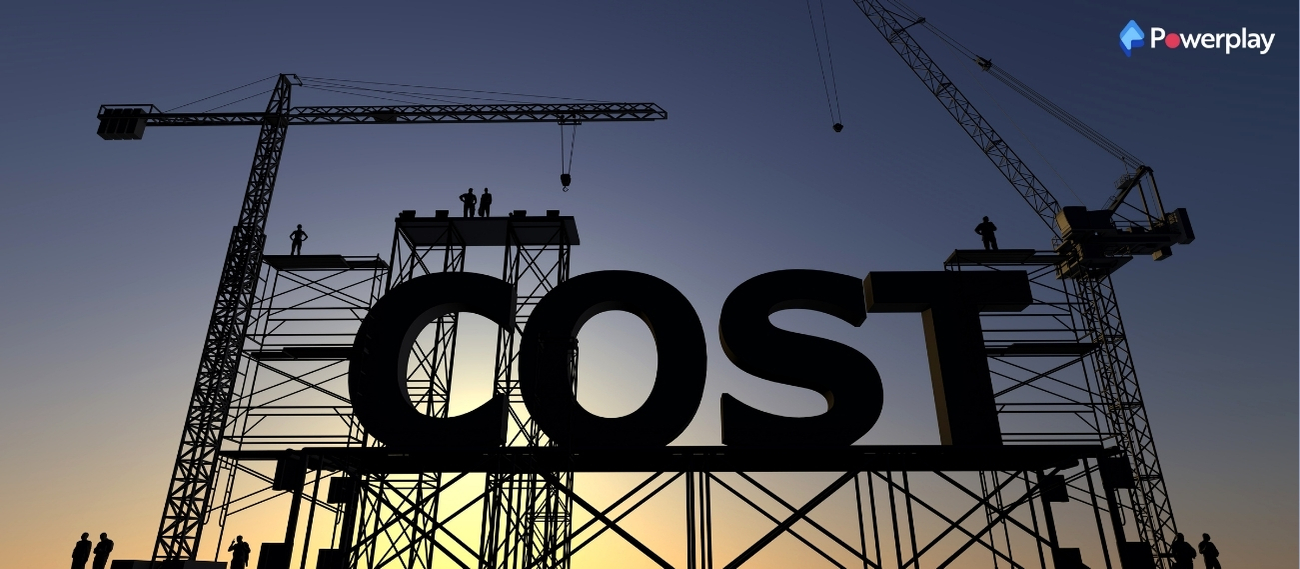
That’s why mastering construction cost management is essential. Understanding what it involves and how it relates to overall construction costs can mean the difference between a project’s success or failure. In this discussion, we’ll clarify these concepts and walk through the construction cost management process, giving you the tools you need to manage your projects more effectively.
Table of Contents
ToggleWhat Is Construction Cost Management?
Construction cost management is a critical process in construction project management. It focuses on planning, estimating, budgeting, and controlling costs to make sure the completion of project is within the approved budget. It involves identifying and defining all the costs related to the project, including labour, materials, equipment, and subcontractors.
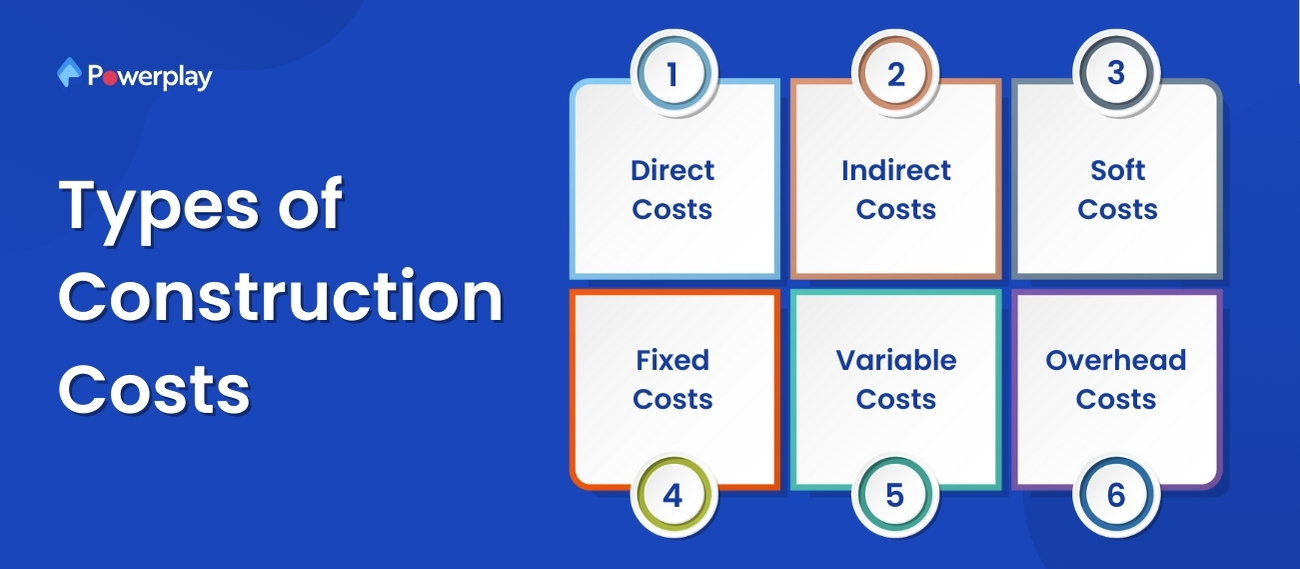
Effective cost management ensures that every aspect of the project is financially optimised and that expenses are tracked and analysed to prevent cost overruns. This process supports project leaders in making informed decisions, maximising resource efficiency, and maintaining the project’s financial viability from inception to completion.
What Is a Construction Cost?
A construction cost is the total expenditure in building, renovating, or finishing a construction project, covering all aspects from labour and materials to equipment and services.
Types of Construction Costs:
- Direct Costs: These costs are directly related to the physical construction of the project, such as labour, materials, equipment, and subcontractor fees.
- Indirect Costs: These are costs not linked directly to the physical construction but necessary for the operation. It also includes administrative expenses, security, utilities, and site maintenance.
- Soft Costs: Expenses indirectly related to construction, like architectural, engineering, legal fees, permits, and insurance.
- Fixed Costs: These do not change regardless of the project’s duration, such as rent or equipment purchase.
- Variable Costs: The costs that vary depending on project duration or the volume of construction work, such as utility bills or labour hours.
- Overhead Costs: General expenses related to running the project management office or the company overseeing the construction, like office rent, salaries of non-field staff, and advertising.
Construction Cost Management Process
The construction cost management process is crucial to keep the construction projects within the allocated budget and on schedule. Let’s learn about each step you need to follow in the process.
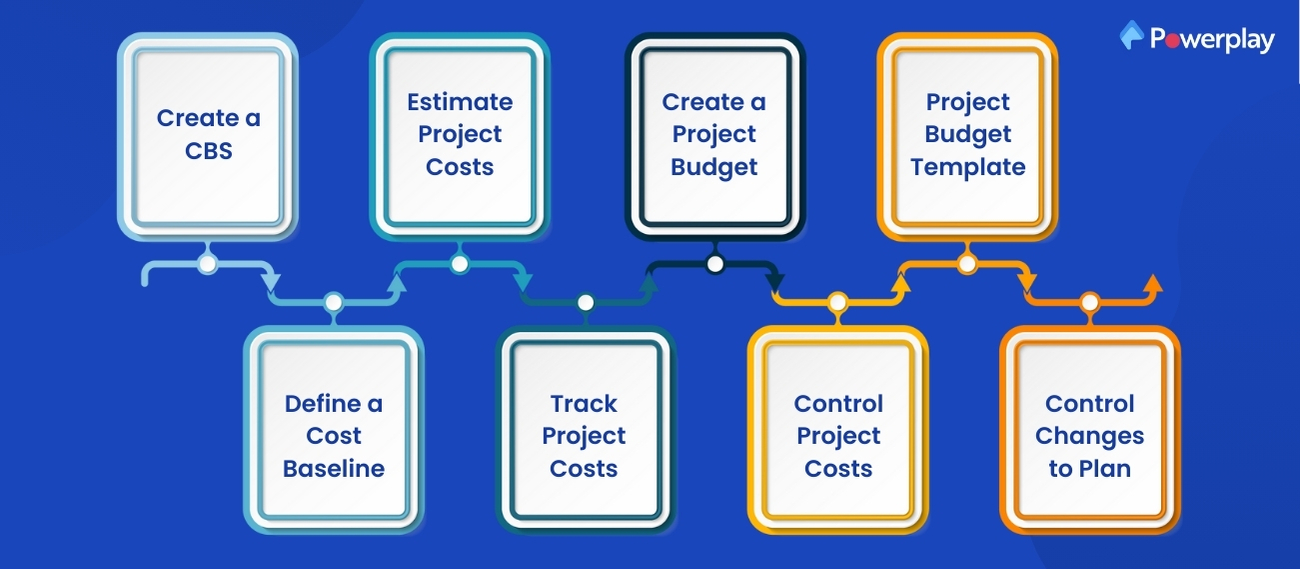
Create a Cost Breakdown Structure (CBS):
The Cost Breakdown Structure (CBS) categorises and organises all construction project costs. This structure breaks down costs into manageable parts, often lined up with the work breakdown structure (WBS), making tracking and managing each aspect of the project’s expenses easier. It typically includes labour, materials, equipment, and overhead costs categories.
Estimate Construction Costs:
Based on the CBS, this step predicts the total costs required to complete the project. Detailed, accurate estimates are crucial and often use historical data, vendor quotes, and market rates. Estimation also accounts for potential variables and uncertainties affecting the project’s costs.
Create a Construction Budget:
After estimating the costs, the next step is allocating funds to create a detailed budget. This budget works as a financial blueprint for the project, outlining how much money is allocated to each segment of the CBS. It includes contingencies for unforeseen expenses, ensuring the project can handle variations without severe financial impact.
Construction Budget Template
A construction budget template is a financial planning tool used to estimate and track the costs associated with a construction project. This template helps ensure a project stays within its budget by monitoring all expenses, including materials, labour, equipment, and other project-related costs. Typically structured in a spreadsheet format, a construction budget template allows for detailed categorisations of expenses, often broken down into direct and indirect costs, labour, materials, contingencies, and overheads.
Download Construction Budget Template
Define a Cost Baseline:
Cost baseline is the approved version of the project budget, which will be used as a standard to measure financial performance throughout the project. It integrates all budgeted items and forms a reference point against which actual costs are compared. Regular monitoring against the baseline helps identify deviations early.
Track Construction Costs During Project Execution:
This involves monitoring and recording all actual expenditures during the project execution and comparing these with the cost baseline. Cost tracking helps ensure that the project stays on budget and allows project managers to see where costs are incurred. Effective tracking uses tools and software to update data in real-time.
Control Construction Costs:
Cost control is managing and regulating expenses to prevent cost overruns. It involves continuously comparing actual spending against the budget, analysing variances, and implementing corrective actions to align with the cost baseline. Strategies might include optimising resource allocation, renegotiating contracts, or adjusting project scope.
Control Changes to the Construction Plan:
Changes to the construction plan, whether due to client requests, unforeseen obstacles, or compliance issues, need to be managed carefully. Each change is evaluated for its impact on time, cost, and quality. Effective change management processes ensure that all changes are documented, approved, and integrated into the project plan and budget in a controlled manner, maintaining project integrity and financial feasibility.
Planning a construction budget
Planning a construction budget is essential because it helps as a financial blueprint for the entire project, ensuring that all expenditures are accounted for and managed effectively. A well-planned budget helps prevent cost overruns by setting clear financial boundaries and expectations. It enables project managers to allocate resources wisely, prioritise spending, and make informed decisions throughout the construction process.
Additionally, a comprehensive budget is crucial for securing funding, as it demonstrates project viability to investors or lenders. Ultimately, a meticulous budget ensures that the project can be completed within financial constraints, contributing to its overall success and profitability.
How do you create a construction cost management plan?
Creating a construction cost management plan involves a structured approach to ensure that all financial aspects of a project are well-planned, monitored, and controlled throughout its duration. Here’s a detailed explanation of the initial steps:
Project Research and Analysis:

- Assess Project Feasibility: To understand the potential challenges and opportunities, evaluate the feasibility through market analysis, site analysis, and legal constraints.
- Define Objectives and Scope: Clearly define the project objectives, scope, and deliverables. This includes detailing the construction project’s size, specifications, and intended functions.
- Conduct Cost-Benefit Analysis: Analyse the expected costs against the potential benefits to ensure the project is financially viable.
- Identify Stakeholders and Requirements: Identify all stakeholders involved and gather their requirements and expectations to ensure the project meets their needs.
Project Development:
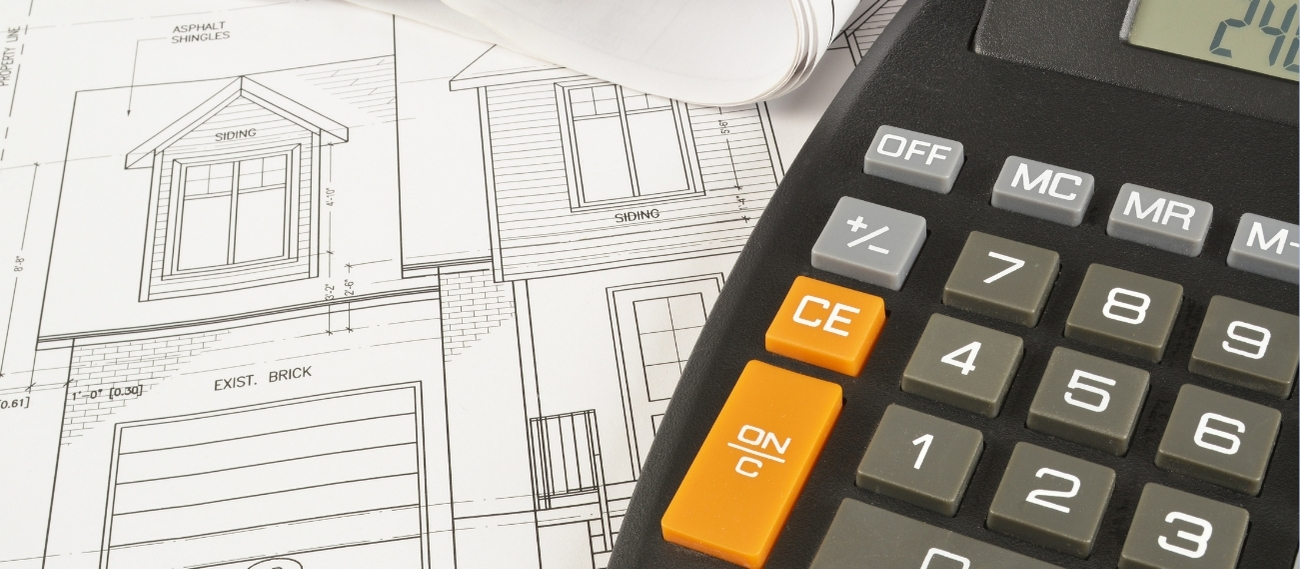
- Detailed Design and Specifications: Develop detailed architectural and engineering designs. The estimation process uses outlined specifications for materials, labor, and equipment as a guide.
- Cost Estimation: Utilise the designs and specifications to perform detailed cost estimations. This includes calculating costs for all resources, labour, materials, equipment, and special requirements.
- Risk Assessment: Identify potential risks related to cost overruns, delays, and other financial uncertainties and develop mitigation strategies.
- Secure Funding: Based on the cost estimations and financial analysis, secure funding or financing for the project. This could involve preparing proposals for loans or investments.
Pre-construction and Documentation:

- Finalise Contracts and Procurement: Finalise contracts with contractors, subcontractors, and suppliers. Ensure all contracts clearly define the scope, cost, timeline, and responsibilities.
- Prepare Construction Documents: Prepare detailed construction documents, which include drawings, plans, and technical specifications. These documents will guide the construction phase and serve as a compliance and quality control reference.
- Obtain Permits and Approvals: Secure all necessary permits and regulatory approvals required to commence construction. This step ensures legal compliance and avoids potential delays.
- Setup Cost Tracking Systems: Implement cost tracking and management systems. This could involve software and tools for budgeting, expense monitoring, and regular financial reporting.
Cost control in construction project
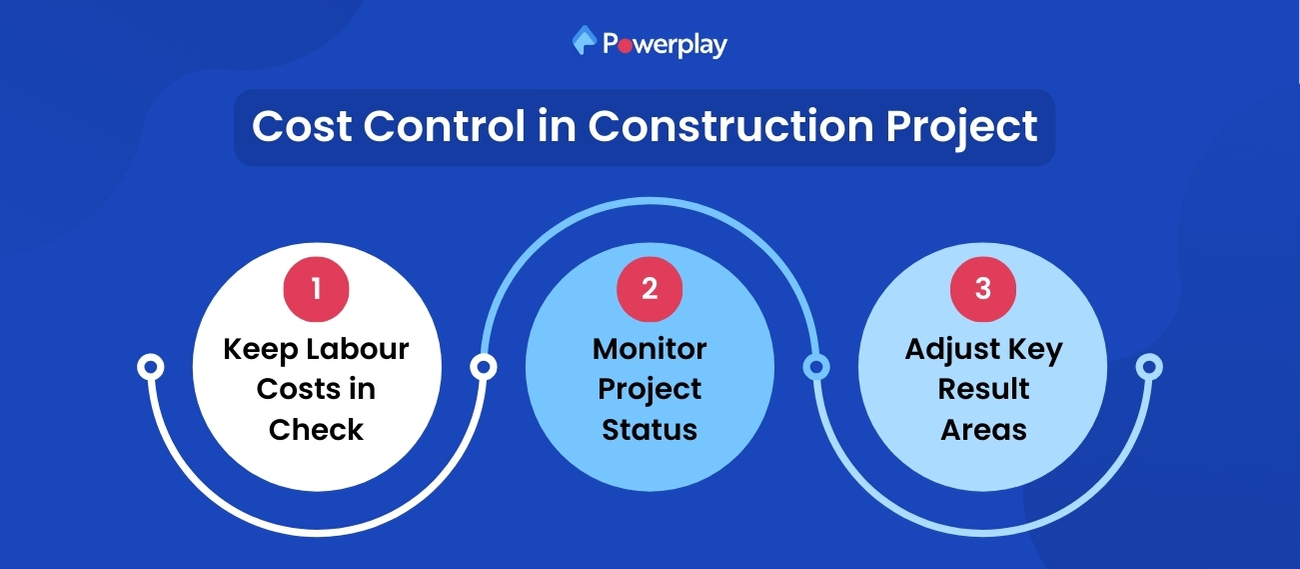
Cost control in construction projects is a critical practice that ensures a project stays within budget while achieving all specified goals. It involves tracking expenses, managing resources efficiently, and adjusting as needed to avoid cost overruns. Effective cost control can differentiate between a profitable project and a financial misstep. Below are key aspects of cost control in construction:
Keep Labour Costs in Check:
Managing labour costs effectively is crucial for maintaining a construction project’s budget. This involves optimising the workforce by employing the right number of workers with the appropriate skills at the right times. It also includes monitoring labour productivity and adjusting work schedules to maximise efficiency. Implementing time-tracking systems can help provide accurate data on labour hours, reducing the risk of overpaying. Additionally, regular training and performance reviews can enhance worker efficiency and reduce the need for overtime, further controlling costs.
Monitor Project Status:
Continuous monitoring of the project’s progress against the planned schedule and budget is essential. This involves regular project status updates, which can help identify any deviations from the plan early on. Project management software can facilitate real-time monitoring and reporting of progress, allowing for quick adjustments. This proactive approach helps address issues before they escalate into costly delays or budget overruns.
Adjust Key Result Areas:
Key result areas (KRAs) in construction typically include timelines, budget adherence, quality standards, and safety measures. Regularly reviewing and adjusting these KRAs as necessary based on ongoing performance feedback is vital for maintaining control over the project. This could mean reallocating resources to critical path tasks to meet deadlines, revising procurement strategies to reduce costs, or enhancing safety protocols to prevent costly accidents. Adjusting KRAs ensures that the project aligns with strategic objectives and operational efficiencies.
How Powerplay can help in construction cost management?
Powerplay, a comprehensive construction management software, offers robust tools to enhance construction cost management. Here are a few key features that make it invaluable for managing project costs effectively:
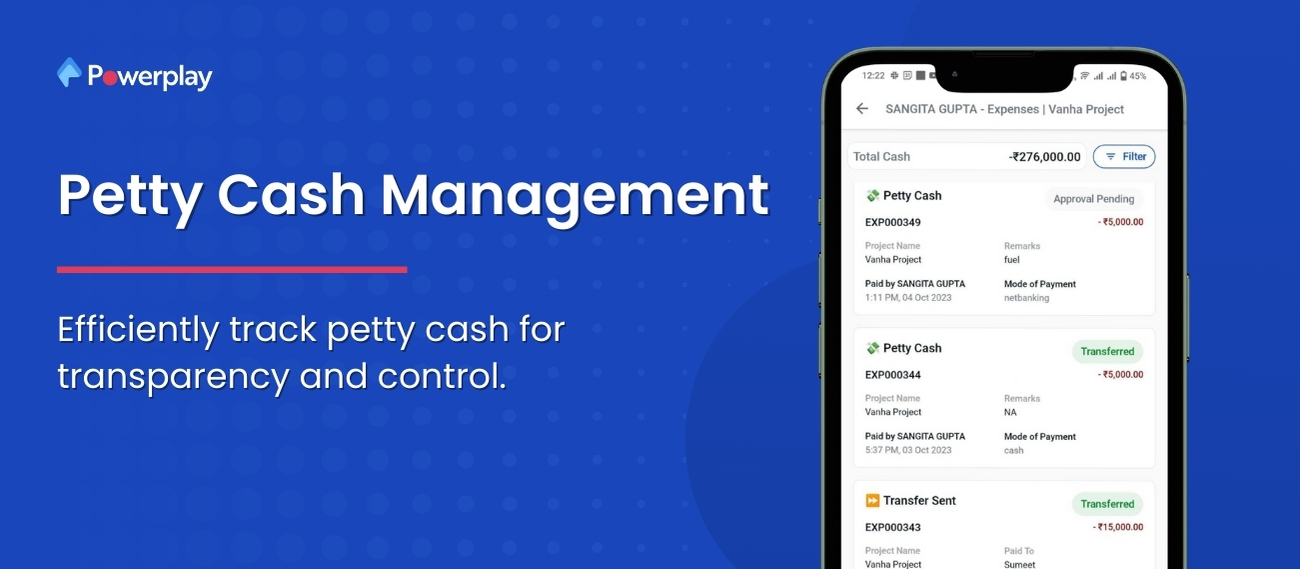
Powerplay’s petty cash management feature allows project managers to track and control small, incidental on-site expenses.nThis feature documents all cash outflows, ensuring the recording and justification of every transaction.By providing real-time insights into petty cash usage, project managers can make more accurate decisions about day-to-day expenditures, helping to maintain tight control over cash flow.
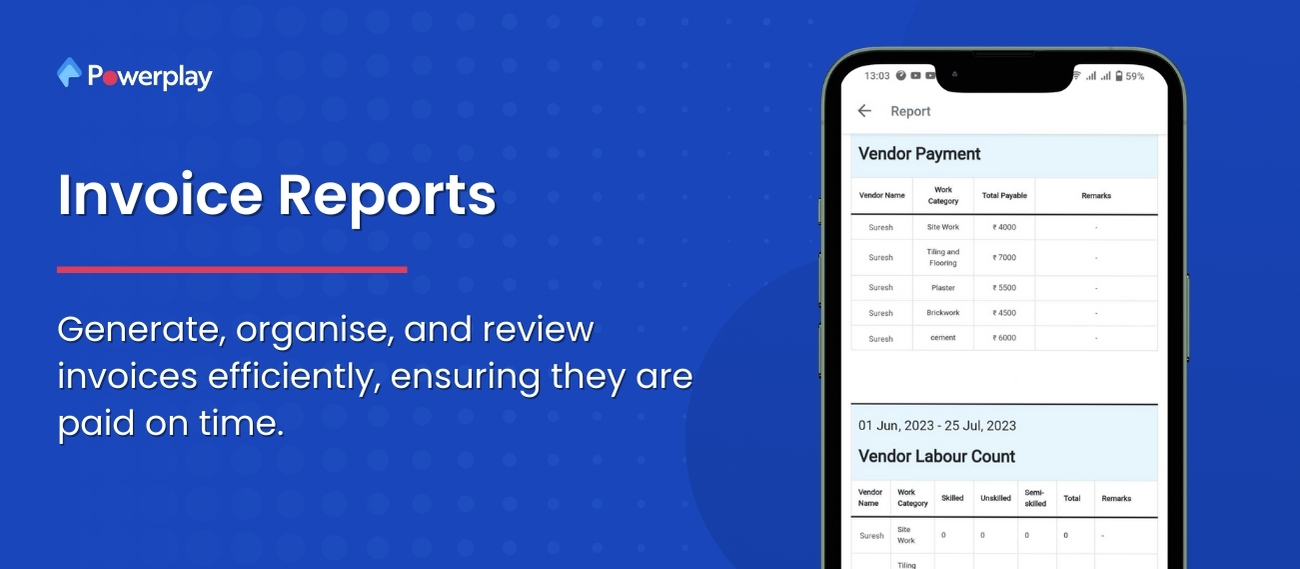
The invoice report feature aids in the detailed tracking and management of all invoices related to purchases you make. Users can also efficiently generate and review invoices to ensure they are paid on time and accurately recorded in the relevant budget categories. With comprehensive invoice reports, project managers can get a clear overview of the financial health of the project and maintain a steady cash flow.
Conclusion
Effective cost control in construction is essential for the success of any project. By keeping labour costs in check, monitoring the project’s progress, and adjusting key result areas. Managers can make sure that projects remain within the allocated budget and meet all set objectives. Implementing strong cost control measures allows for the efficient use of resources, minimises financial risks, and enhances overall project profitability. Ultimately, mastering cost control techniques is vital to maintaining a competitive edge in the construction industry.
